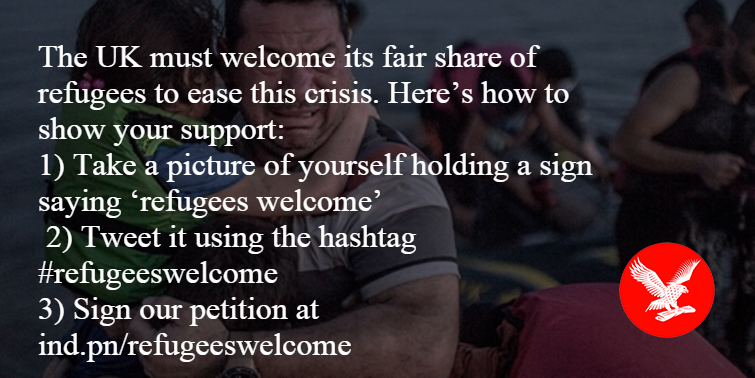Refugee crisis: EU faultlines revealed as Hungary's PM warns of risk to 'Christian' culture
Viktor Orban defended his own country’s construction of an anti-migrant fence, topped with razor wire, along Hungary’s 110-mile border with Serbia

The growing European Union divide over how to respond to the refugee crisis was thrown into stark relief when Hungary’s Prime Minister castigated critics of his hard-line policies for putting “Christian” Europe at risk.
As it emerged that the European Commission was working on plans for the relocation of up to 160,000 refugees who have arrived in Italy, Greece and Hungary around EU member states, Viktor Orban bullishly defended his own country’s construction of a 13ft-high anti-migrant fence, topped with razor wire, along Hungary’s 110-mile border with Serbia.
Orban insisted that his government was merely complying with EU regulations for dealing with migrants and said the fence was needed to defend the EU’s external borders. “Hungarians are full of fear,” he added. “Europeans are full of fear. They see that European leaders are unable to control the situation. Don’t criticise Hungary for doing what has to be done.”
His approach will be met by an equally determined humanitarian effort from the European Commission over the next few weeks. Commission President Jean-Claude Juncker, who met Mr Orban in Brussels, wants the EU to quadruple the number of refugees it guaranteed to relocate from the 40,000 agreed by EU leaders in June.
Mr Juncker – who has attacked the “short-sightedness of those who would like to see a Europe that is divided by anti-migrant walls” – is expected to announce the plan in an address to the European Parliament on 9 September. He will formally present it at an emergency meeting of EU justice and home affairs ministers on 14 September.
It follows Mr Juncker’s attempt earlier this year to persuade national governments to spread the burden of refugees more evenly through a quota system, with numbers allocated to each country determined by its population size, GDP, unemployment rates and the number of refugees already taken in.
Despite his effort, national governments had only offered places to 32,000.
One option likely to be included in the new plan would be to compel EU countries that refuse to accept an obligatory quota system – Britain among them – to make a financial contribution to those that do.
German Chancellor Angela Merkel and French President François Hollande said that they would shortly unveil joint plans “to organise the reception of refugees and a fair distribution in Europe” as well as “converging standards to strengthen the European asylum system”.
Speaking in Switzerland, Ms Merkel said all countries were duty bound, by the 1951 United Nations Refugee Convention, to offer protection to those fleeing war and persecution. Echoing her, Mr Hollande said: “These men and women, with their families, are fleeing war and persecution. They need international protection.” Yet Mr Orban illustrates the obstacles the relocation plan faces. Hungary straddles the main route to northern Europe for refugees from Syria and other trouble spots and Mr Orban argues that the EU should focus on protecting its borders, not letting in more refugees.
In an article for the Frankfurter Allgemeine Zeitung, Mr Orban played on fears of a culture clash between Europe and the new refugees. “The people coming here grew up in a different religion and represent a completely different culture,” he wrote. “Most are not Christian, but Muslim. Is it not worrying that Europe’s Christian culture is already barely able to maintain its own set of Christian values?”
However, he was rebuked by EU Council President Donald Tusk. “For me, Christianity in public and social life carries a duty to our brothers in need,” he said. “Referring to Christianity in a public debate on migration must mean in the first place the readiness to show solidarity and sacrifice. For a Christian it shouldn’t matter what race, religion and nationality the person in need represents.”
Mr Tusk conceded that the EU needed to strengthen its external borders and “get the keys to Europe back from the hands of smugglers and murderers”, but added that “the two approaches of solidarity and containment must not be mutually exclusive”.
Yet Mr Orban admitted that Hungary itself does not have an immigration problem, conceding that very few of the refugees who enter the country wanted to stay. “The problem is not a European problem. The problem is a German problem,” he said. “Nobody would like to stay in Hungary, nor Slovakia, nor Poland, nor Estonia. All of them want to go to Germany.”
His blunt language is echoed by other eastern European leaders. Slovakia’s Prime Minister Robert Fico has made it clear that his country would only take in Christian asylum- seekers, and Poland has also expressed a preference for taking Christian over Muslims.

Join our commenting forum
Join thought-provoking conversations, follow other Independent readers and see their replies
Comments